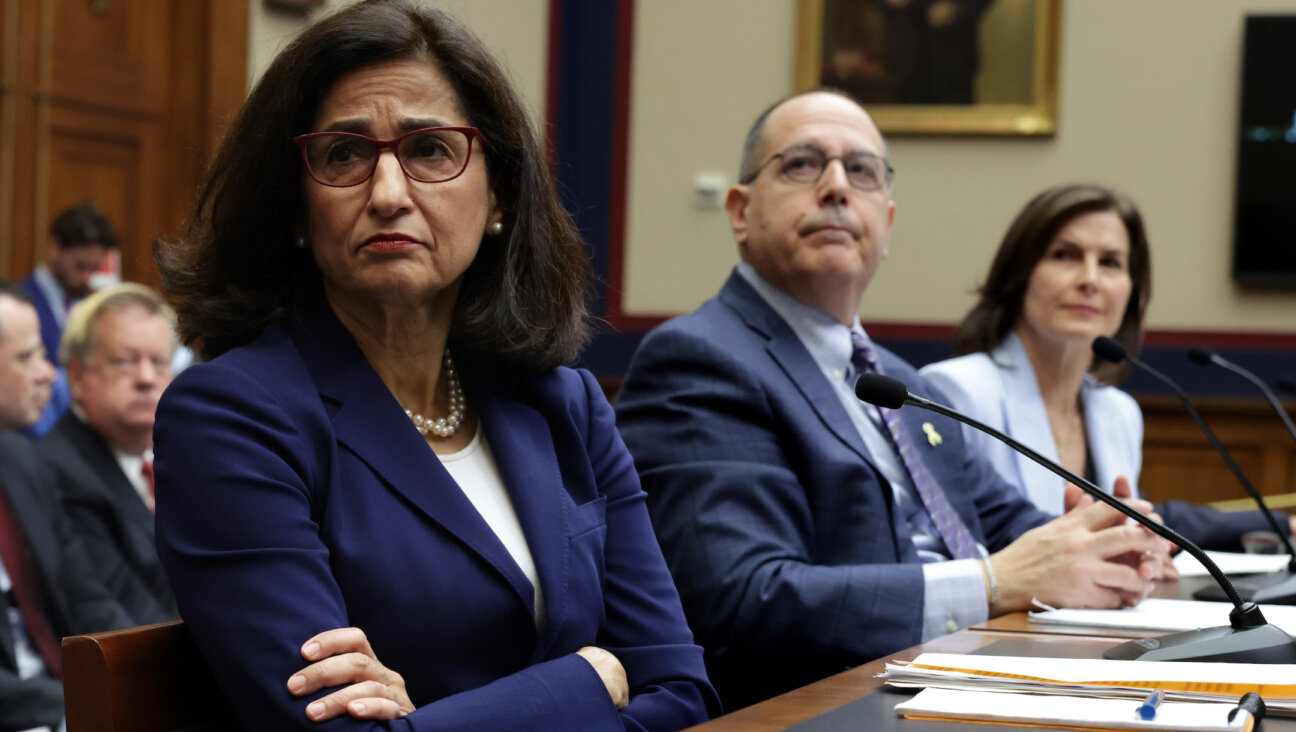Turkish Leader’s Trip Signals Warmer Relations
ISTANBUL — The recent announcement that Turkey’s prime minister, Recep Tayyip Erdogan, will visit Israel signals the possibility of the two Middle Eastern allies coming to the end of a rocky period in their relationship, officials in Turkey and Israel say.
“The significance for both sides is that the official declaration of the visit means that relations are back on track after a tough political year,” Pinhas Avivi, Israel’s ambassador to Turkey, said. “The economic and security relations were not impacted, but I think [Erdogan’s] visit will again solidify the political relations.”
Erdogan, who heads the Islamic Justice and Development Party, is scheduled to depart for Israel on May 1 and spend two days in the country. He is expected to meet with Israeli counterpart Ariel Sharon, Foreign Minister Silvan Shalom and President Moshe Katsav. He also will visit the Palestinian territories and meet with officials there.
The upcoming visit, Erdogan’s first to Israel, has been in the works for a long time. Its delay became yet another point of friction in an increasingly strained relationship; most notably, Erdogan was quoted several times describing Israel’s actions against the Palestinians as “state terror.” Some observers noted that these comments were likely influenced by the fact that Erdogan’s own political party has roots in Islamic fundamentalism, and that conceivably he could score political points in the Arab and Muslim world by criticizing Israel — especially since Israeli representatives routinely avoid reciprocating by criticizing Turkey’s treatment of its minorities.
“After the strained period of harsh remarks toward Sharon and his government, if this trip goes well and there is a deepening of understanding and dialogue, it would mean the return to normality for the Turkish-Israeli relationship,” said Soner Cagaptay, an expert on Turkey at the Washington Institute for Near East Policy.
Turkey’s relations with the United States also seem strained these days. American political and military officials continue to express disappointment over Turkey’s refusal to allow American troops to enter Iraq from the north, across the Turkish border, when the war in Iraq began two years ago. Washington also has been alarmed by a rise in anti-American sentiment in Turkey; for example, one of the country’s best-selling books is a fictional account of an American military invasion of Turkey.
Erdogan is expected to visit the United States later in May, but Ephraim Inbar, director of the Begin-Sadat Center for Strategic Studies at Israel’s Bar-Ilan University, said Erdogan’s visit to Israel may be an indication that one of the roads to Washington goes through Jerusalem.
“I think it’s a signal to Washington” that Turkey wants to improve its relationship with the United States, “and could use Israel’s help in doing that,” Inbar said.
Ankara also depends on the support of American Jewish organizations, which frequently have acted as the main lobbyists on Turkey’s behalf in Washington. Jewish American leaders recently have expressed concerns about the strains between Turkey and both Israel and the United States.
“This would be one way of winning back the hearts of the American Jewish organizations,” Cagaptay said.
Despite the political tensions, Israeli and Turkish officials point out that other components of the relationship between the two countries — particularly trade and military cooperation — have not been affected. The level of annual trade between the two countries is now approaching $2 billion, up from $1.2 billion three years ago.
Turkey also recently signed a $200 million deal to buy a sophisticated network of unmanned aerial vehicles and ground stations from Israel. Erdogan’s visit — and an expected reciprocal trip by Sharon to Turkey — will help bring the relationship back to normal, Inbar said.
“You have to invest in bilateral relations, especially with Turkey. This is a chance for Israel to invest in the relationship, to introduce Erdogan to the right people,” Inbar said. “Maintenance is an important part of the relationship.”

I hope you appreciated this article. Before you go, I’d like to ask you to please support the Forward’s award-winning journalism this Passover.
In this age of misinformation, our work is needed like never before. We report on the news that matters most to American Jews, driven by truth, not ideology.
At a time when newsrooms are closing or cutting back, the Forward has removed its paywall. That means for the first time in our 126-year history, Forward journalism is free to everyone, everywhere. With an ongoing war, rising antisemitism, and a flood of disinformation that may affect the upcoming election, we believe that free and open access to Jewish journalism is imperative.
Readers like you make it all possible. Right now, we’re in the middle of our Passover Pledge Drive and we need 500 people to step up and make a gift to sustain our trustworthy, independent journalism.
Make a gift of any size and become a Forward member today. You’ll support our mission to tell the American Jewish story fully and fairly.
— Rachel Fishman Feddersen, Publisher and CEO
Join our mission to tell the Jewish story fully and fairly.
Our Goal: 500 gifts during our Passover Pledge Drive!
























